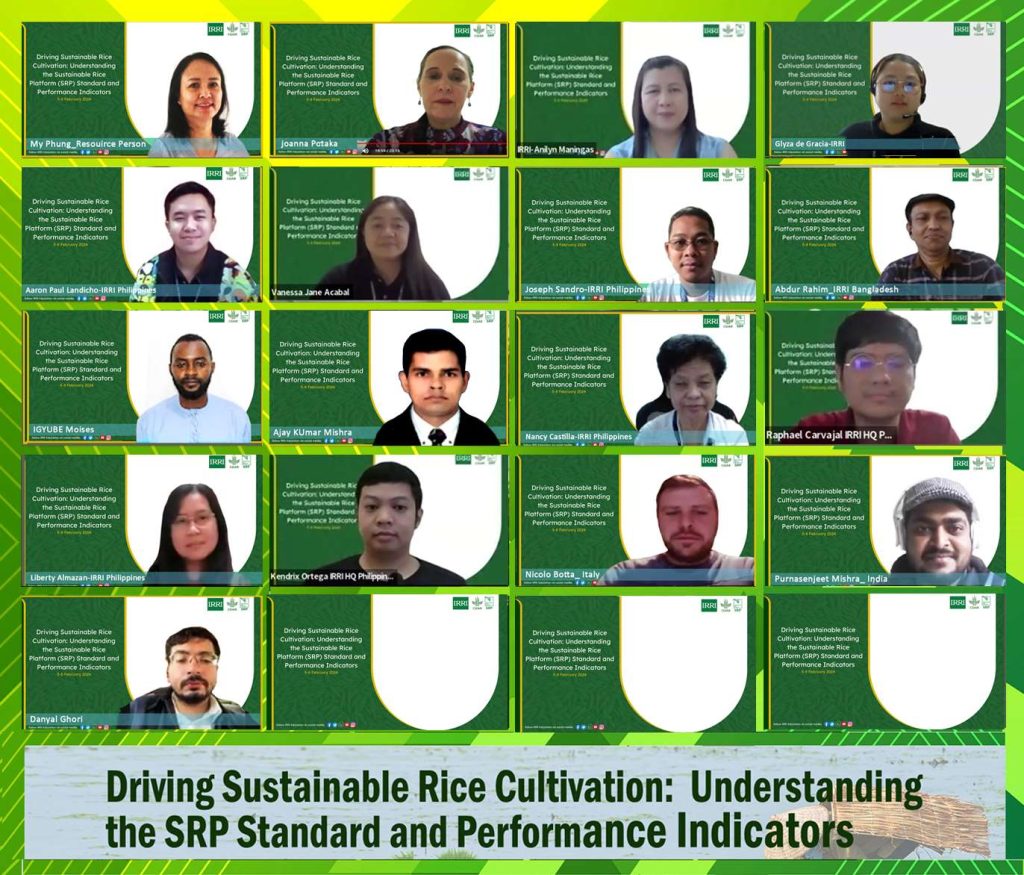With the threat of climate change to the agriculture sector, specifically to rice production, switching to sustainable rice cultivation is the way forward. Sustainable rice production optimizes rice productivity, protects the environment, mitigates climate change impacts, and safeguards the livelihood of smallholder farmers.
The International Rice Research Institute (IRRI), as an authorized training provider of the Sustainable Rice Platform (SRP), recently delivered a four-day course on SRP Standard and Performance Indicators to 14 individuals from Pakistan, Italy, United States, Philippines, India, Nigeria, and Bangladesh.
IRRI Education, the educational and capacity building arm of IRRI, led the facilitation of the online training. Dr. Nguyen Thi My Phung, IRRI consultant, served as the resource person for the training. The course, entitled “Driving Sustainable Rice Cultivation: Understanding the SRP Standards and Performance Indicators”, is a training-of-trainers course intended to capacitate individuals to help scale capacity building on the SRP Standards and Performance Indicators on-the-ground globally. Topics covered include an introduction to sustainable rice; the SRP Standards,covering the standard’s conceptual framework and the 41 requirements; the SRP Performance Indicators, which also covered the conceptual framework, the 12 SRP Performance Indicators, and how to use the performance indicators to measure impact; and an introduction to the SRP assurance scheme.
At the end of the course, participants were expected to understand the purpose of the SRP instrument, how they are linked, and how they can be used together to drive sustainable rice cultivation; and gain understanding of application of SRP Standard and Performance Indicators to meet targets of SRP outreach projects. The course was delivered purely online through a mixed modality of synchronous and asynchronous discussions and self-paced e-learning activities, utilizing IRRI Education’s Learning Management System.
Participants have expressed their enthusiasm in joining the course and the learning outcomes they have gained. “I enjoyed all the sessions during SRP training, especially the discussion in the breakout rooms and the presentations. It was all very interactive even though it was online”, commented Mr. Purnasenjeet Mishra.
Another participant, Ms. Maria Liberty Almazan, shared how much she has gained from the training from having no knowledge at all about SRP. She expressed that she now has the knowledge and skills to verify if a farmer’s way of rice farming is compliant to the SRP Standards by measuring the impact of his adoption of good farming practices.



